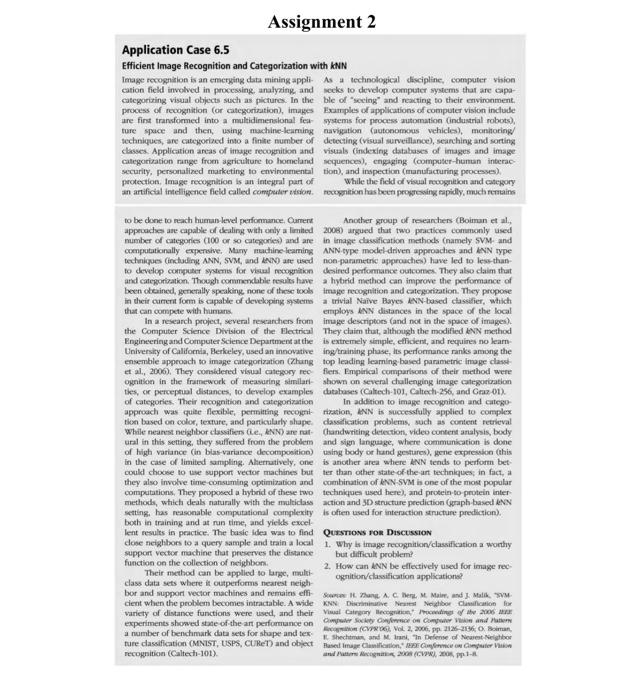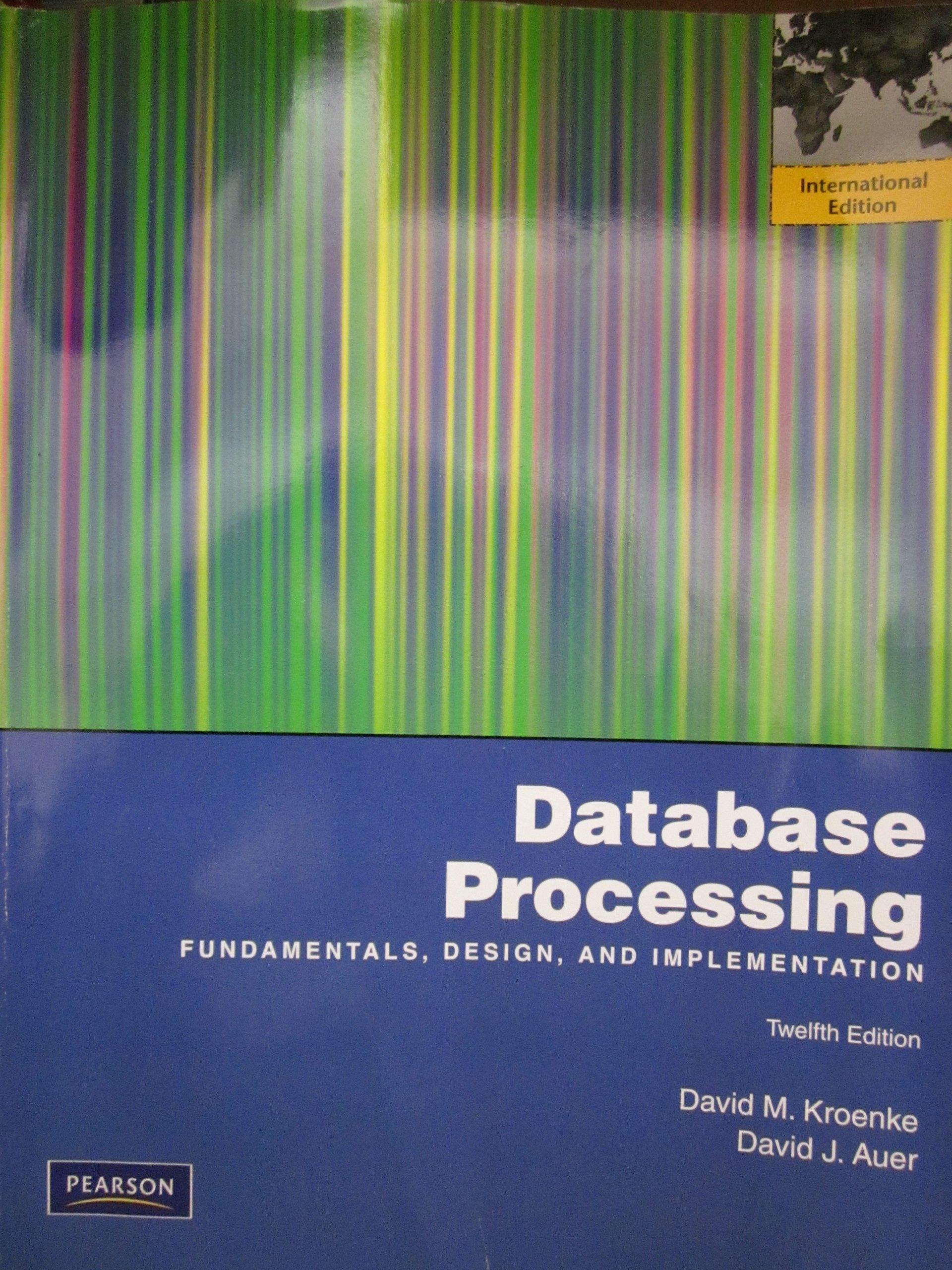Assignment 2 Application Case 6.5 Efficient Image Recognition and Categorization with kNN Image recogniaion is an emerying dats mining appli-. As a technological discipline, computer vision cation field involved in processing, analyzing, and secks to develop computer systems that are capacatcgorizing visual objects such as pictures. In the ble of "secing" and reacting to their environment. process of recognition (or catcgorization), images Examples of applications of computer vision inctude are fint transformed into a multidimensional fea- systems for peocess automation (industrial robots), ture spoce and then, using muchine-leuming navigation (autonomous vehicles), monhoring/ sechniques, ane categorised into a finite number of detecting (visual surveillance, searching and sorting classes Application areas of imuge recogribion and visuals (indexing databuses of images and image categorization range from agricuture to horncland sequences), engaging (oomprier-human interacsecurity, personalized marketing to environmental tion), and inspection (manufacturing processes). protection. Image recognation is an inteyral part of While the fichd of visual rocognikion and casegory to be done to neach humas level perfomance. Current Ancether groop of reseanhers (Boiman et al, appecuadses ase capable of dealing with only a limined 2008) argued that two peactice commonly used mumber of categories (100 or so categories) and ane in image dessification methods (namely SVM and computationally expensive. Mary machine leaming ANN:type modeh daven appeoaches and kN type tectaigues (inctuding ANN, SVM, and LNO) ate used non parametric approuches) have led to lest thanto develop conpuer sparms for visul nexprition desired perfonnance outcomes. They also claim that and categorization, Though commendible foults have a hybrid method can improve the performance of been oteined, generally speaking none of these tools image reoognition and catcgatization. They propose in their curnent fom is capable of developing spsems a trivial Naive Bayes iEN-bosed cassilier, which that can oompete with humans. employs hN distances in the space of the local In a research project, sevenal reseanchers from imuge descriptoes (and not in the spoce of imagee). the Computer Science Division of the Electrical They claim that, although the modified kVN method Engineering and Computer Science Depurtment at the is extremely simple, efficient, and requires no karnUniversily of Callfornia, Berkeley, used an innovative ing/trining phuse, its performance ranks among the ensemble approach to image cateporization (Zhang top leading learning baved parametne inuge clasd et al, 2000. They combdered visual category ree- fless. Empirkal comparbons of their method were ogniition in the frainework of meavuring similari- shown on sevenal duallenging image categonization ties, of pereptewl distances, to develop examples chtobuses (Caltech-101, Catect-256, and Craz-01). of categories. Their recognition and categorizalion In addition to image fecognitive and categoapproach was quite Aexible, permitting recogni- riazion, iNN is successfully applied to complex tion bused on color, teature, and particularly shape. dassiceation problems, such as content reuleval While nearest neighbor classifiers (Le., kNV are rat. Gandwriting deretion, video content analysis, body aral in this setting, they suffered from the problem and sign languge, where communication is done of high variance (in blas-variance decompoition) using body or hand gestures), gene exprewion (this in the case of limited sampling. Alernutively, one is ancaher area where kNN tends to perform betcould chocse to use support vector machines but ter than other state of the ant tectiniques, in fact, a they also involve time consuming optimization and combination of KNVSVM b one of the most popolar compatations, They proposed a hytrid of these two tectiniques used here), and protein-so protein inter methods, which deals naturally with the multiclass action and 3D structure peediction (graph-based eNS setting. has reasonable computatiomal coinglexity is ofien used for interaction structure prediction). bosh in training and at run time, and yieks excellent results in pactice. The basic ides was to find Qursnoss ron Discussion dose neighbors to a query sample and train a local sepport vector machine that preserves the distance 1. Why is image recognition/dassification a worthy function on the collection of neighbon. Their method can be appliced to lunge, malti- 2. How can iNN be effectively used for image rec: class data sets where it outperforms nearest neighognition/dassitication applications? dient when the problem becomes intractable. A wide KNN Divertinuse Mrana Nedibor. Clawillation for







